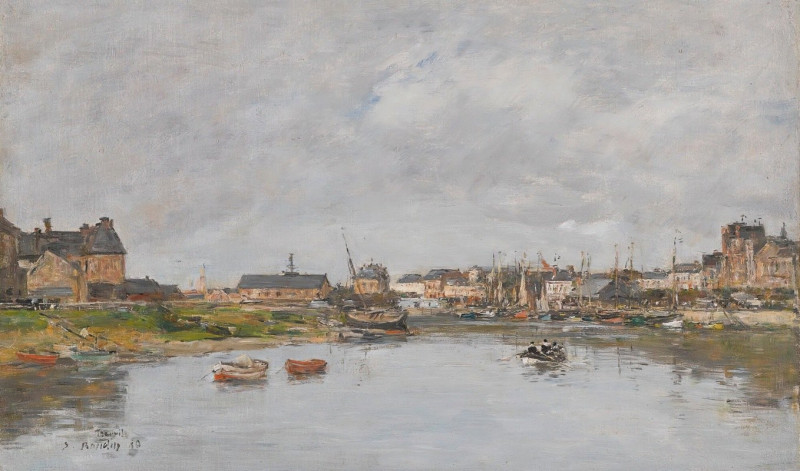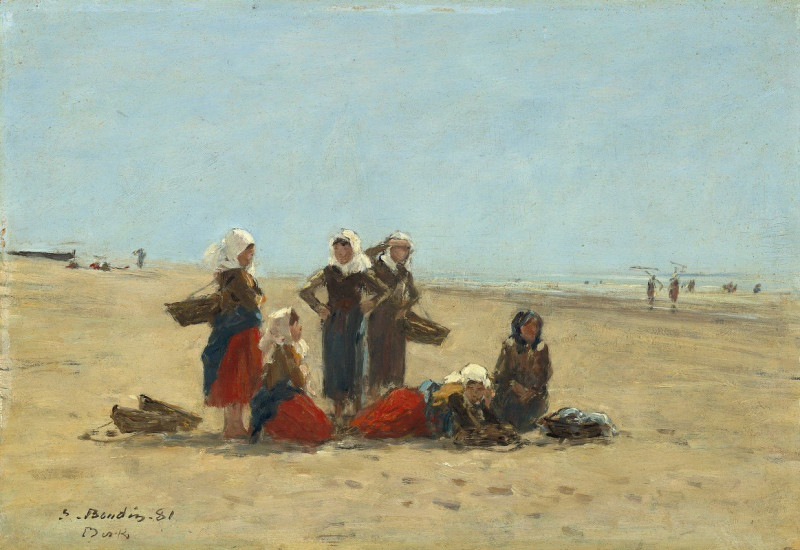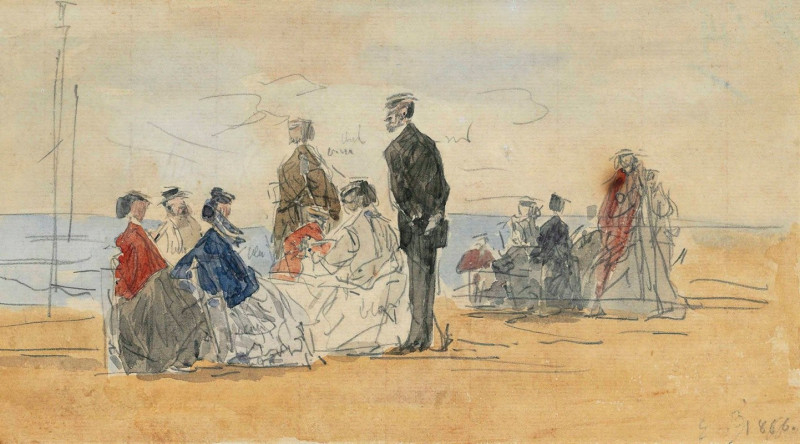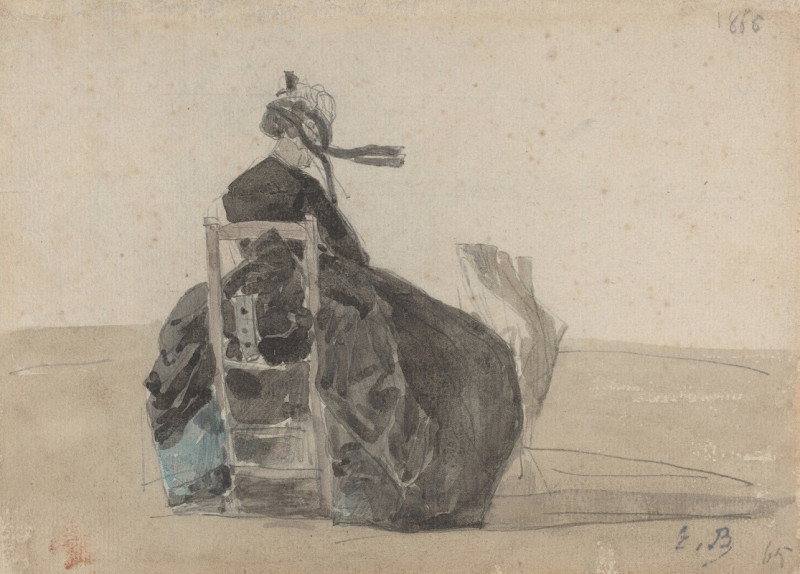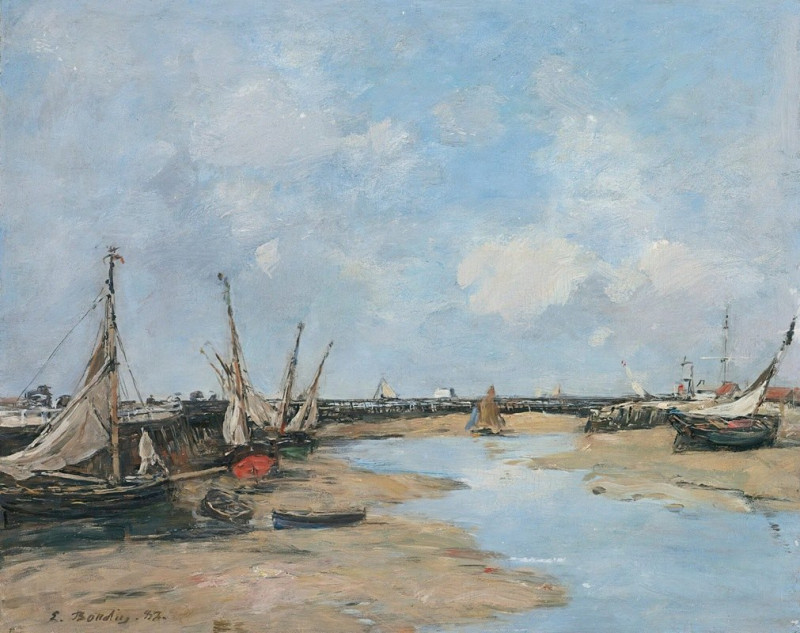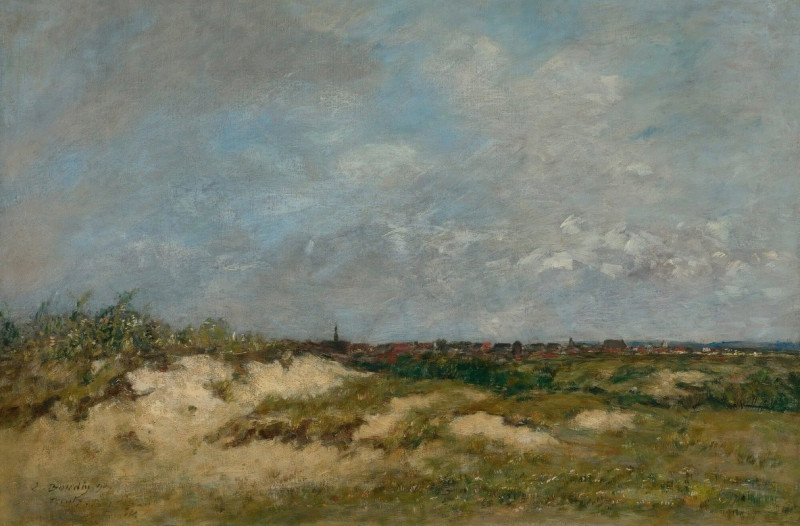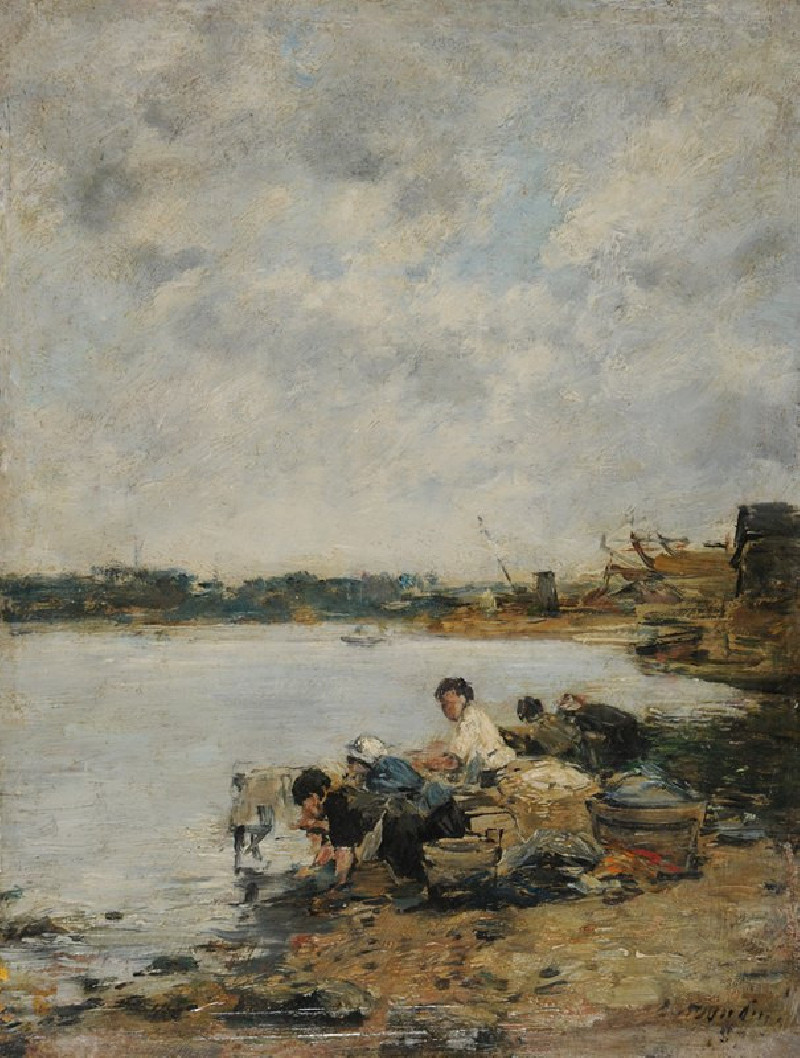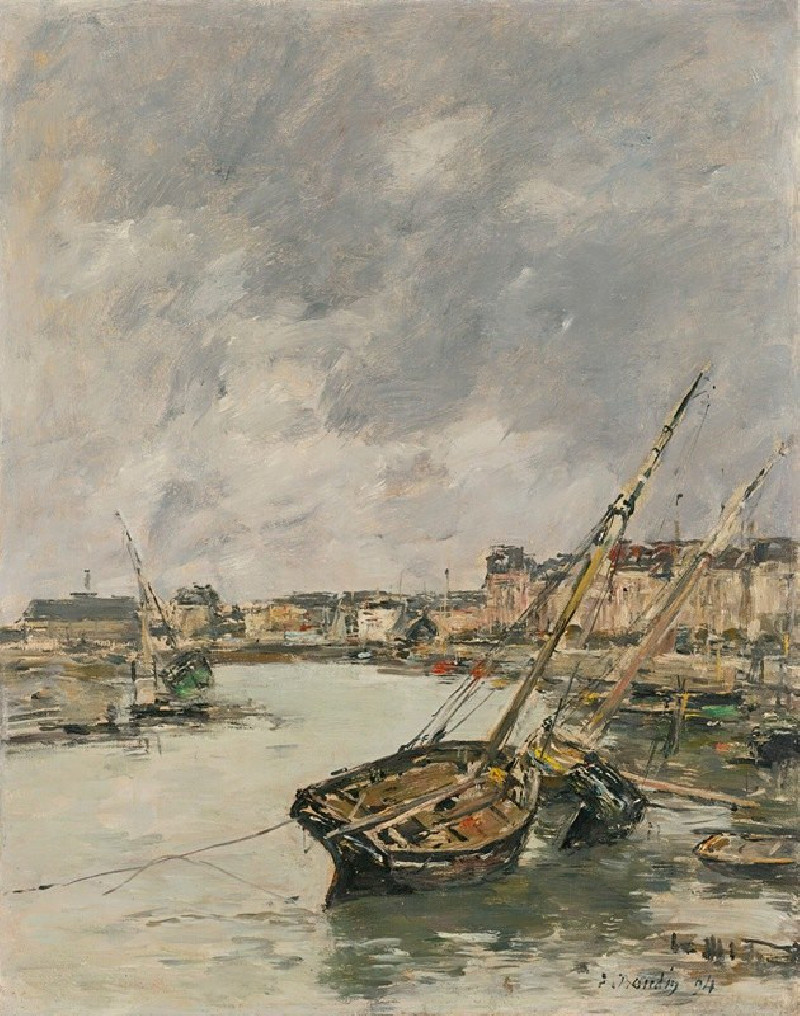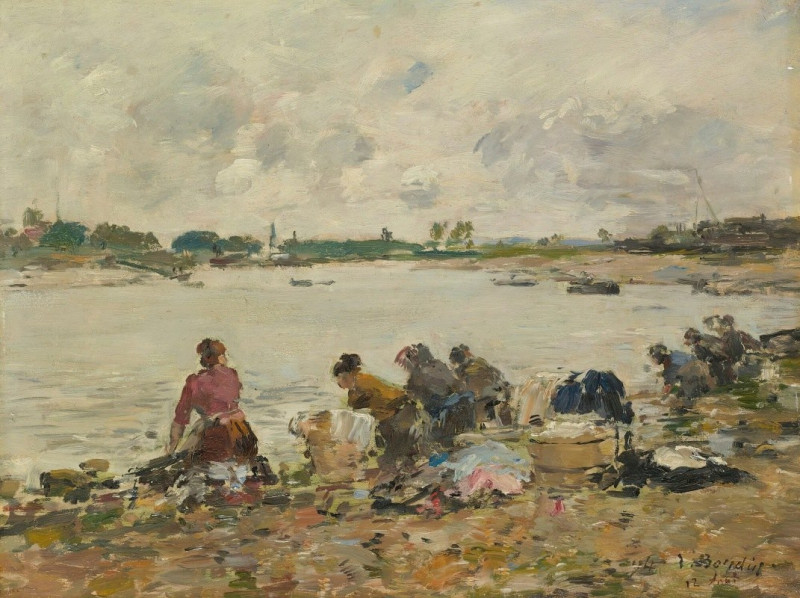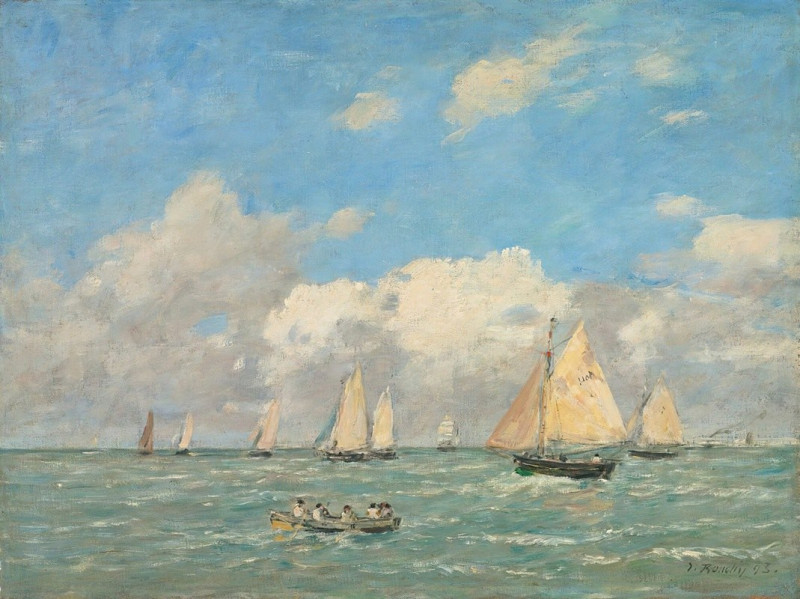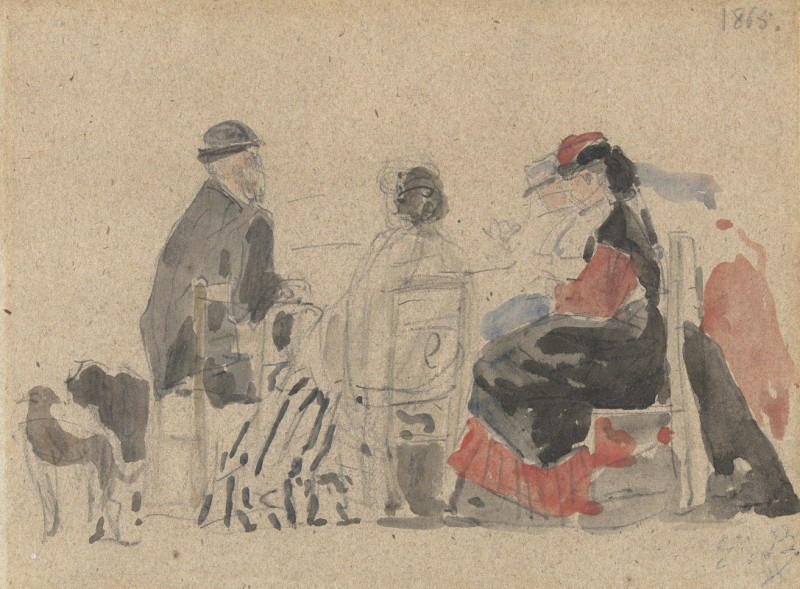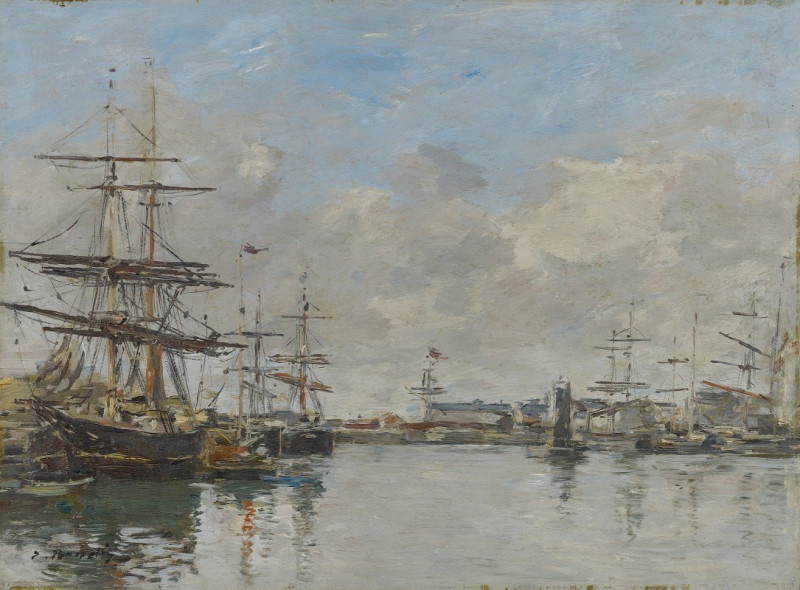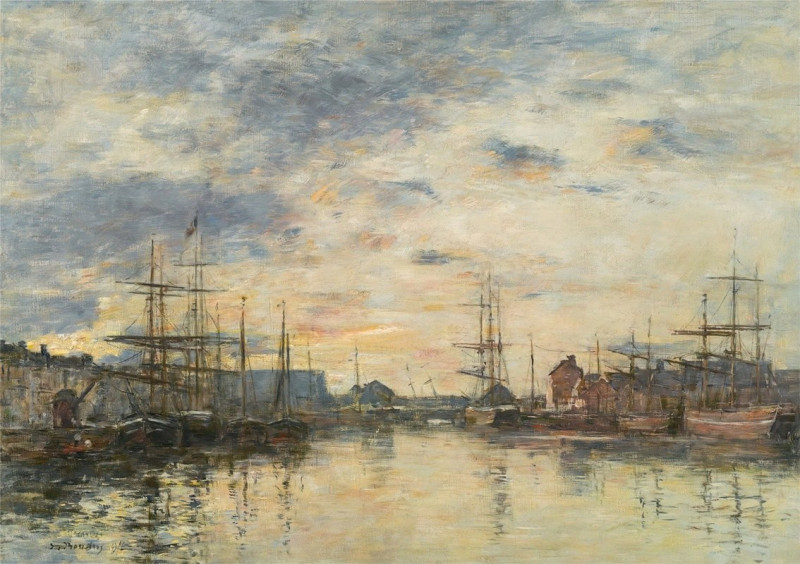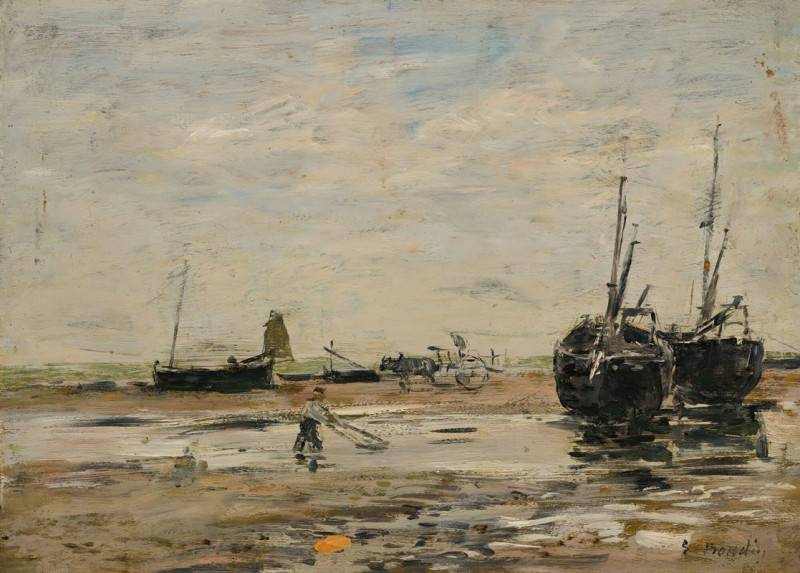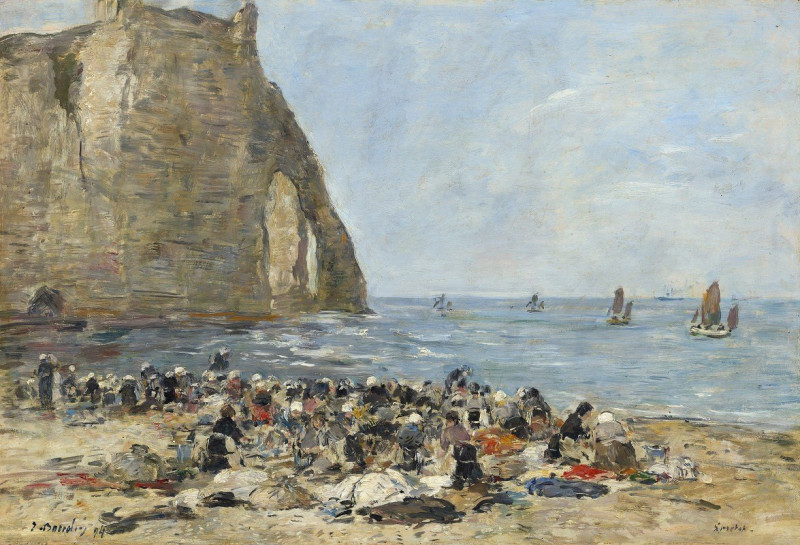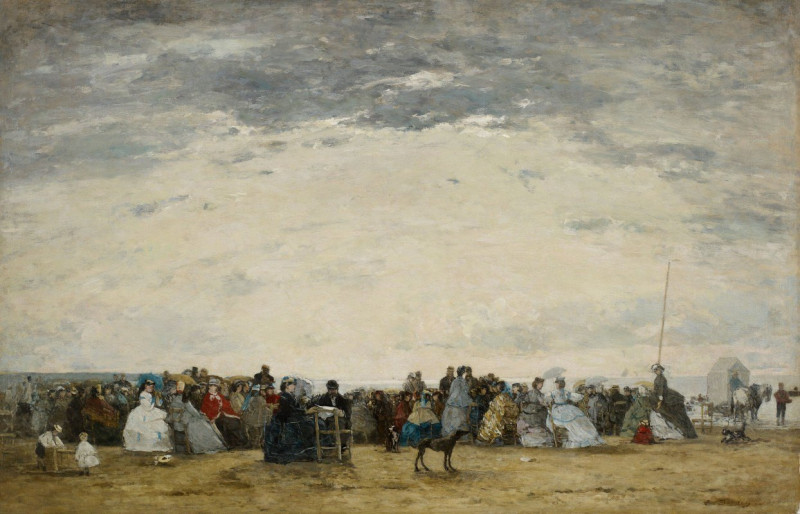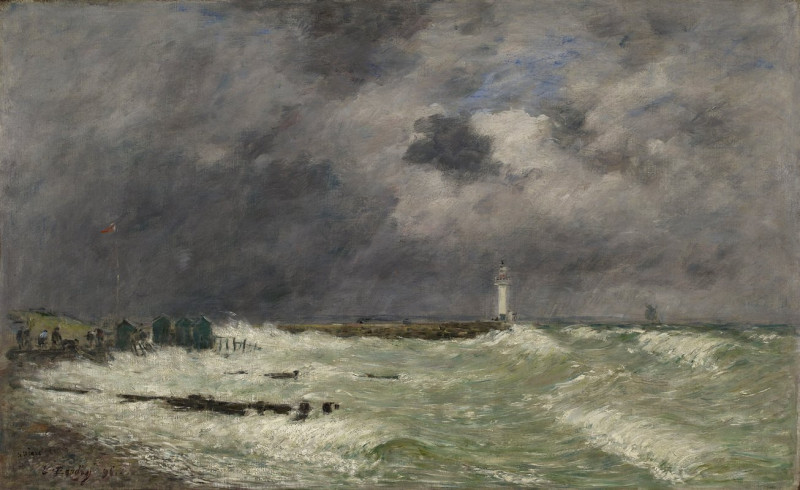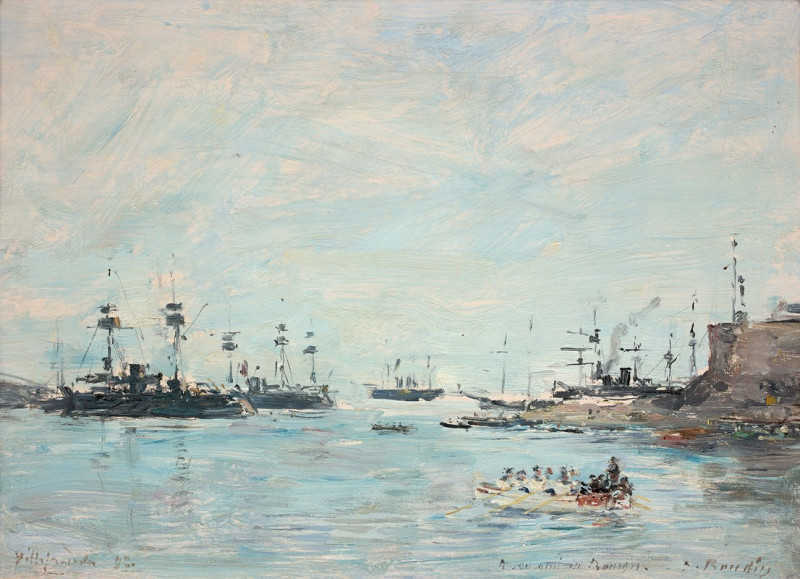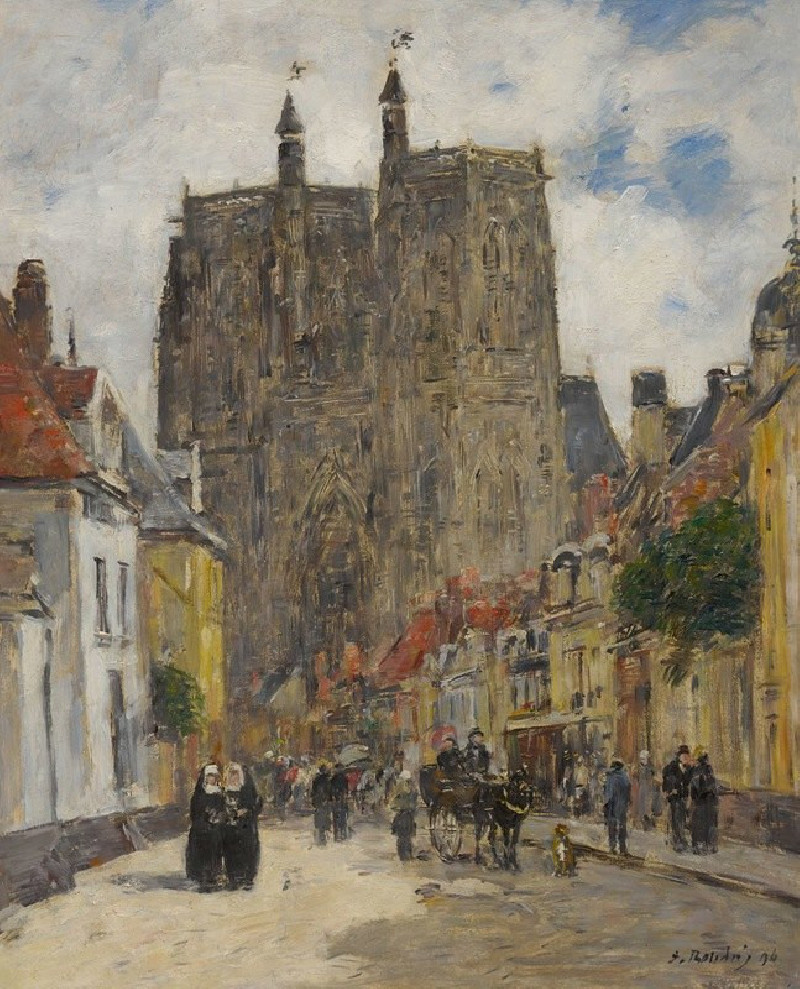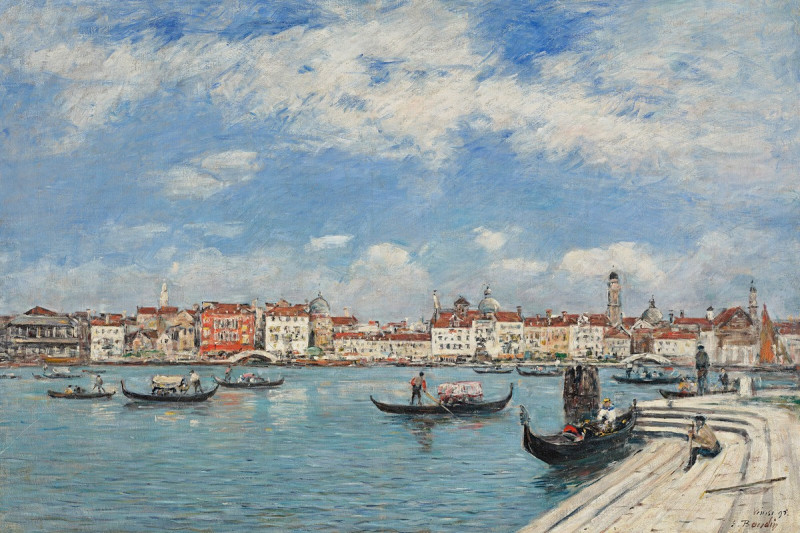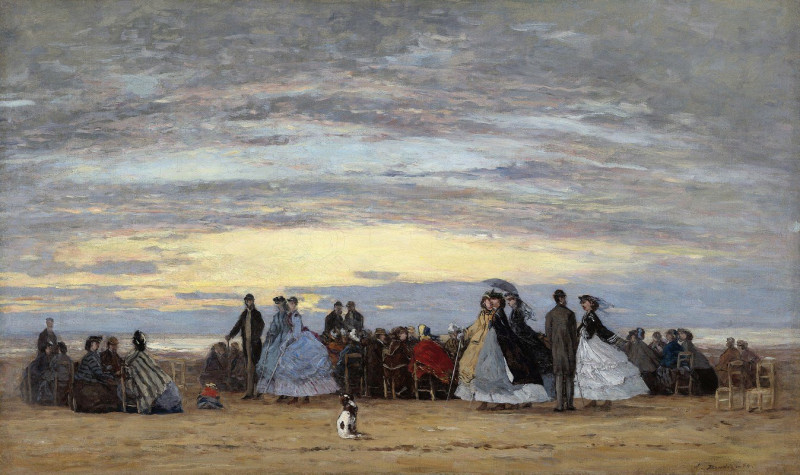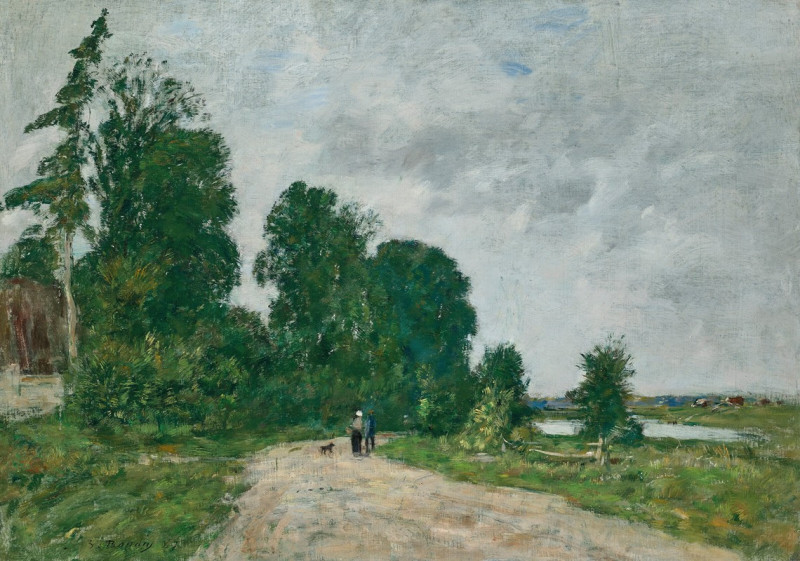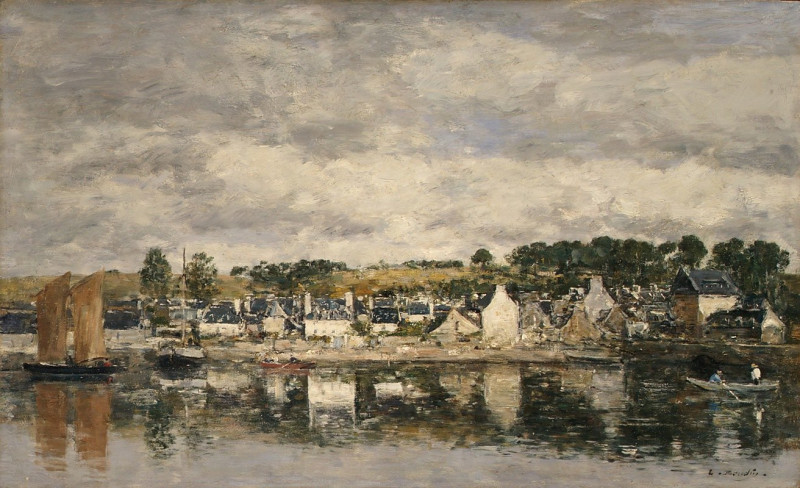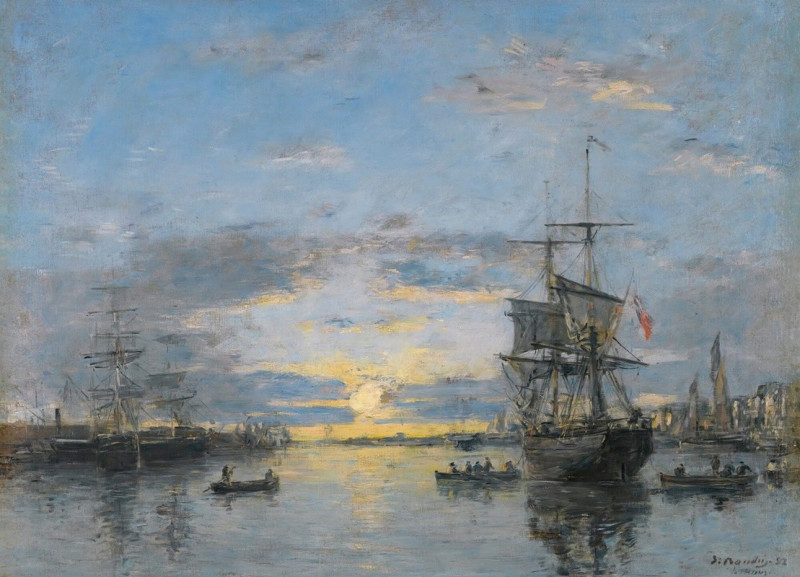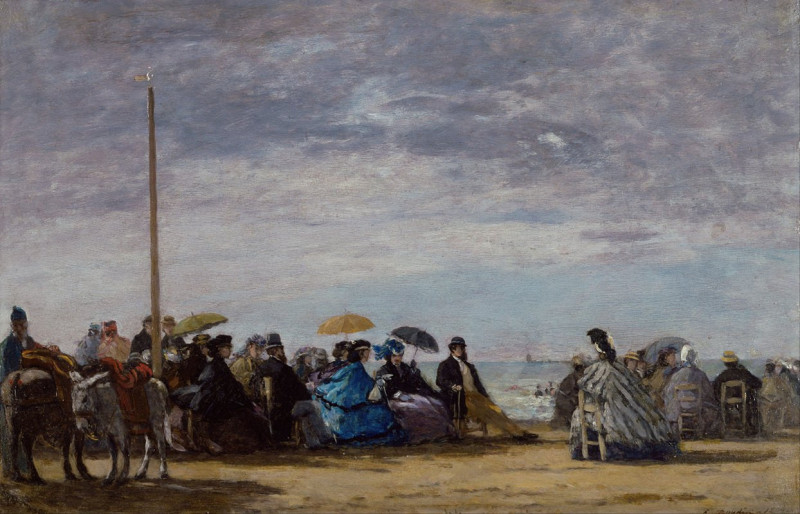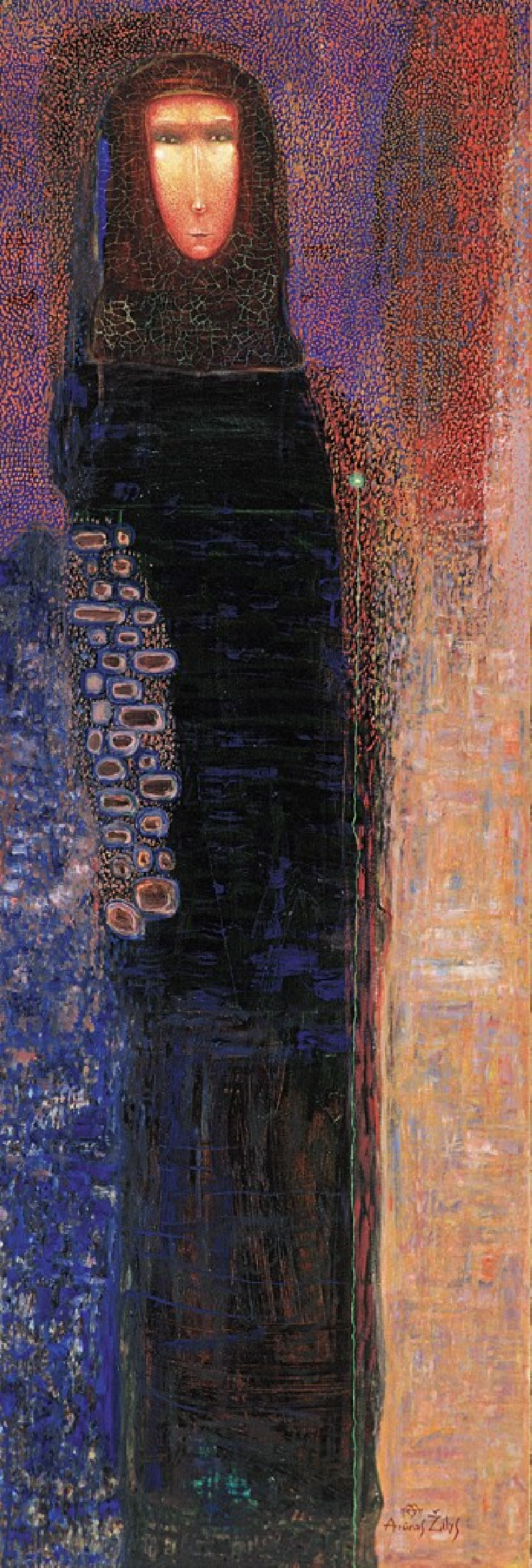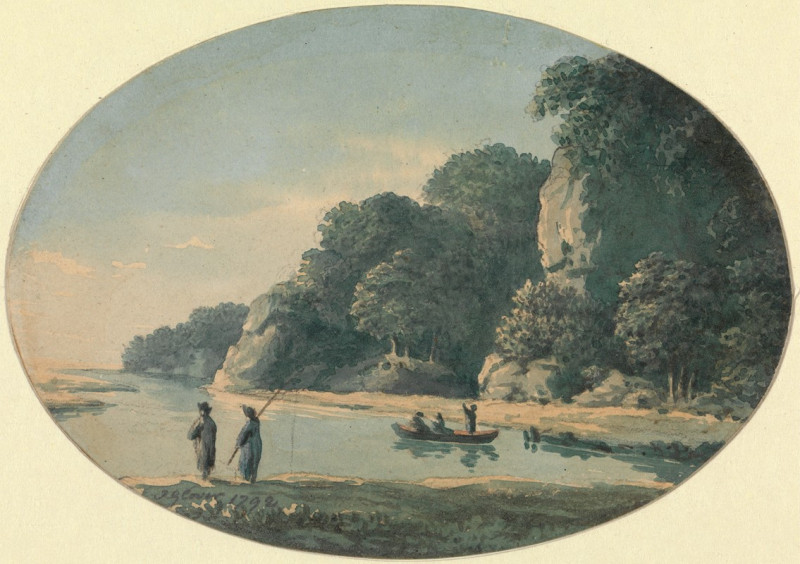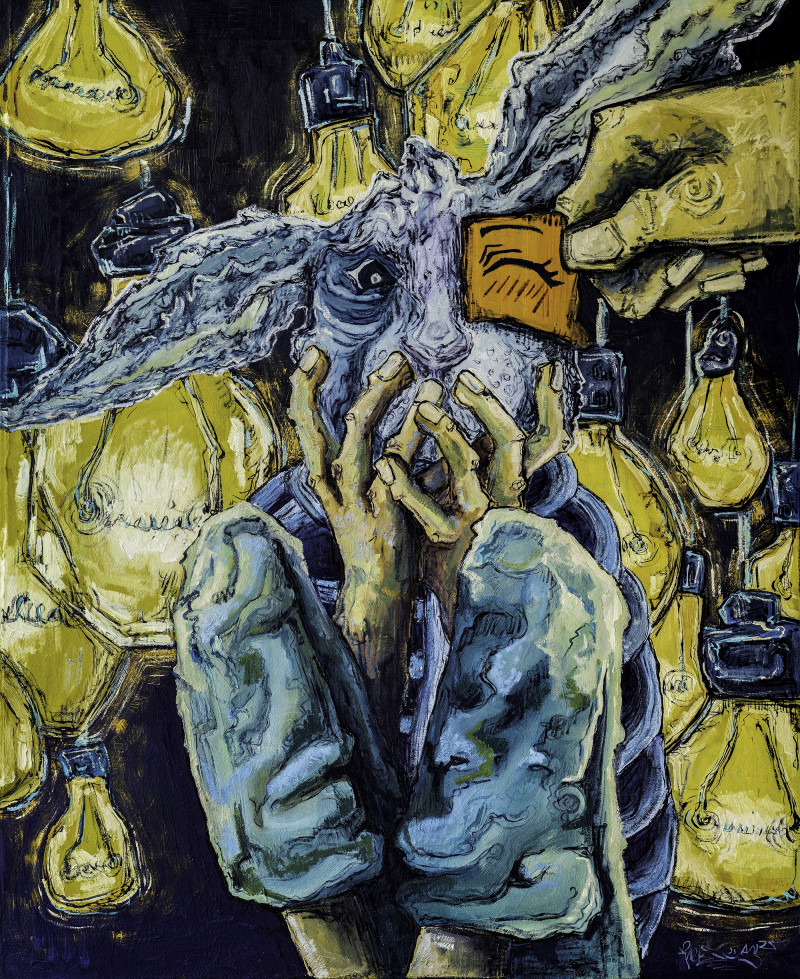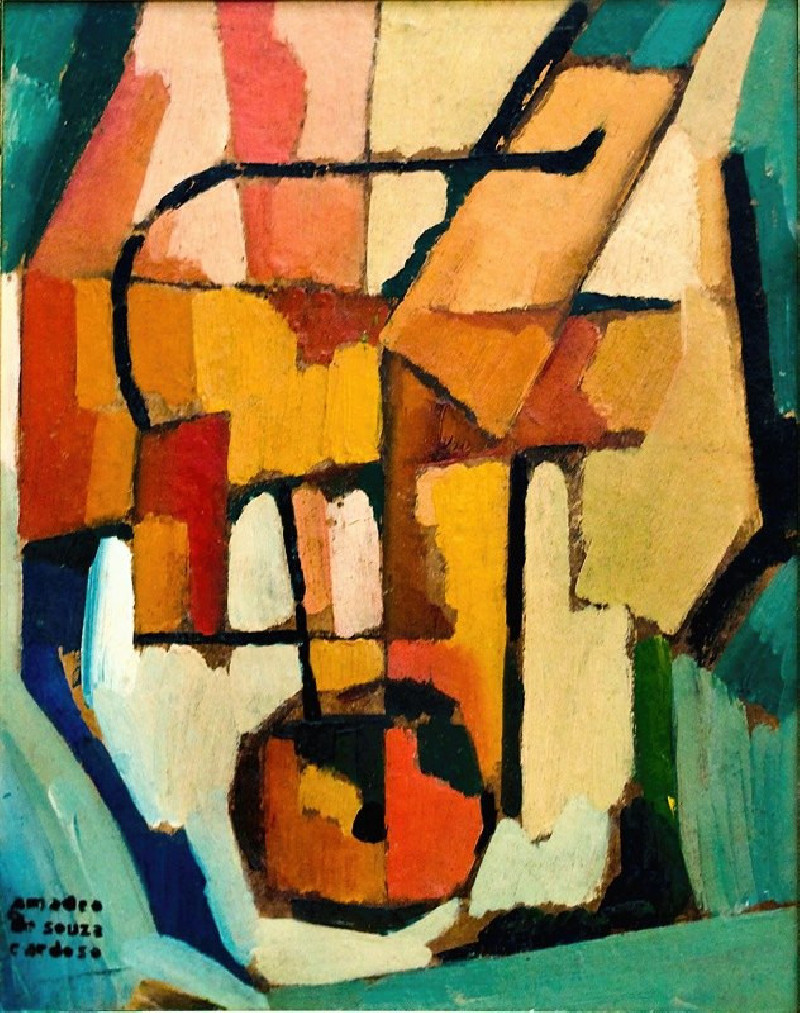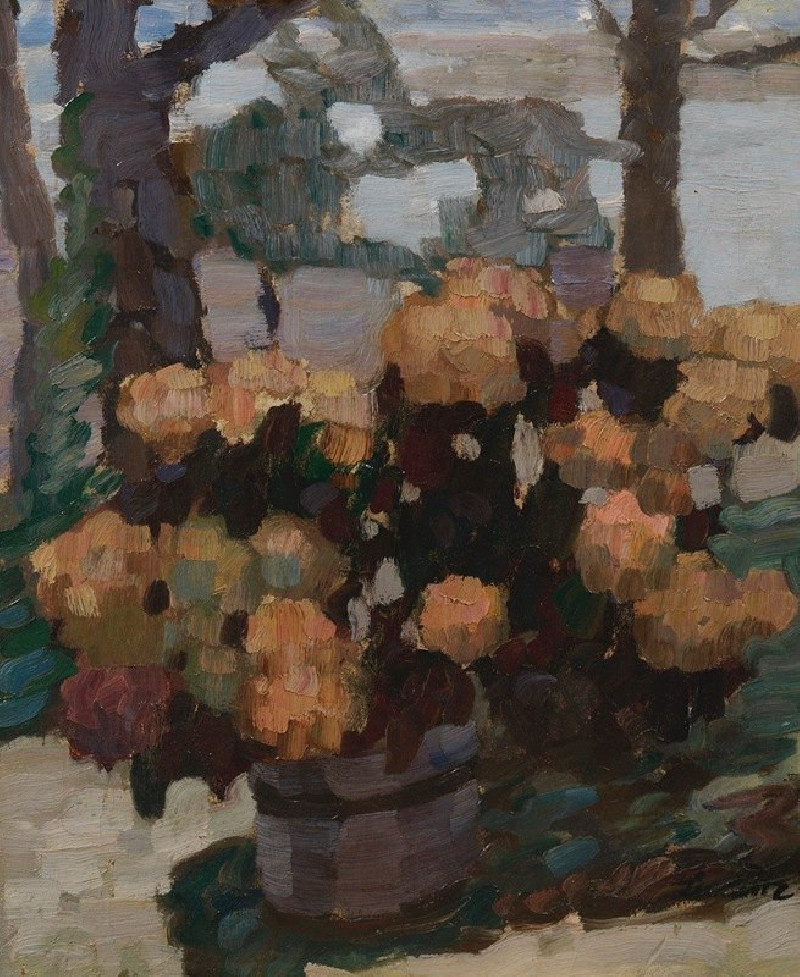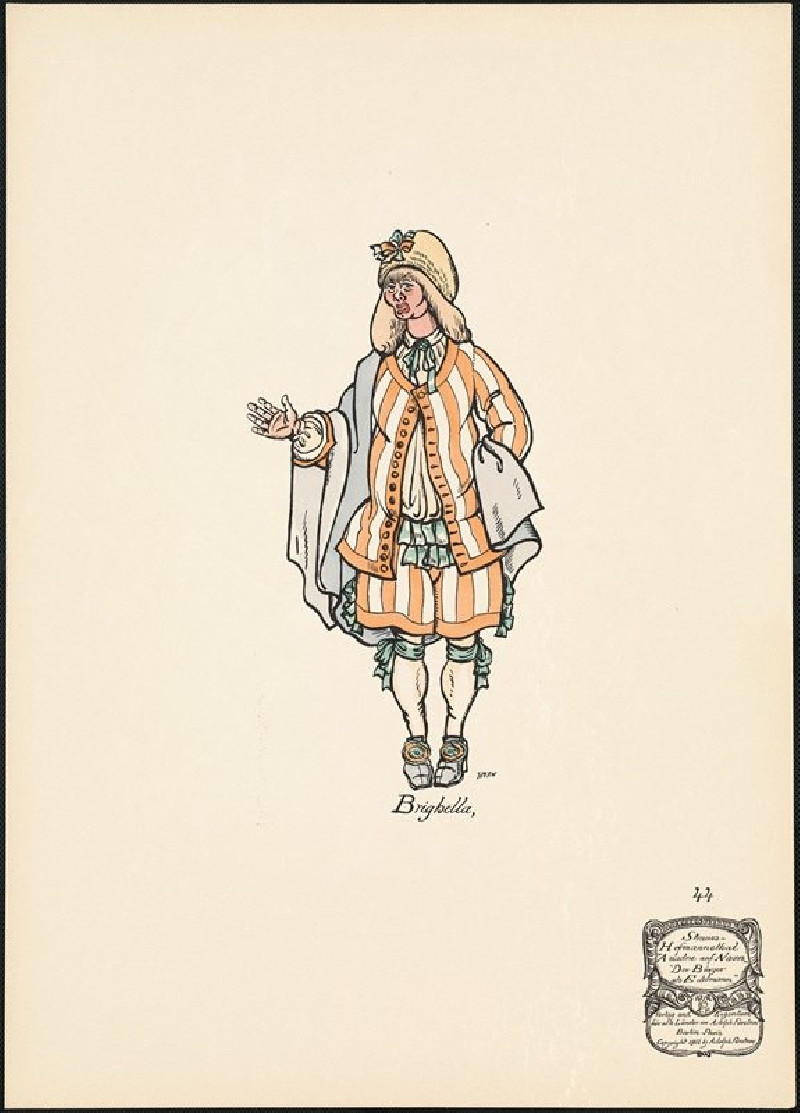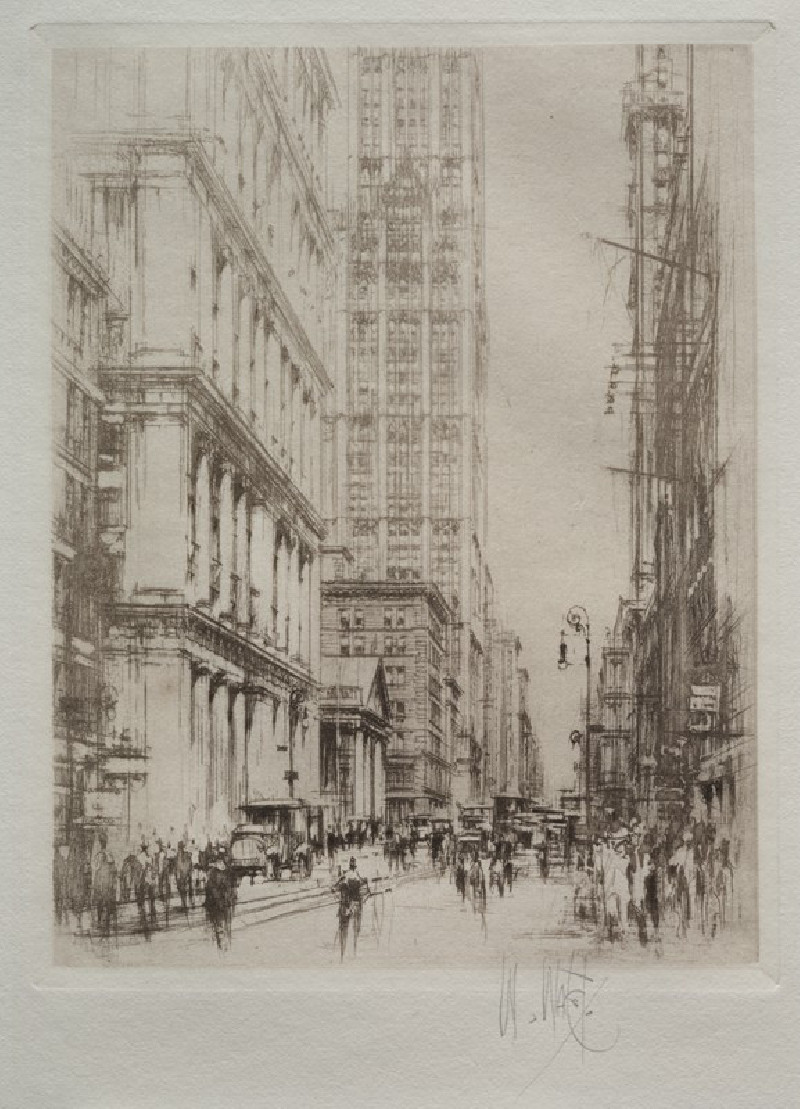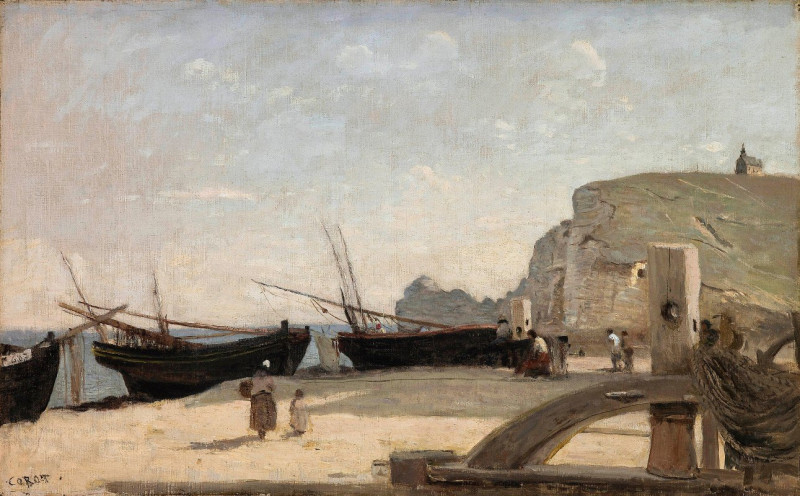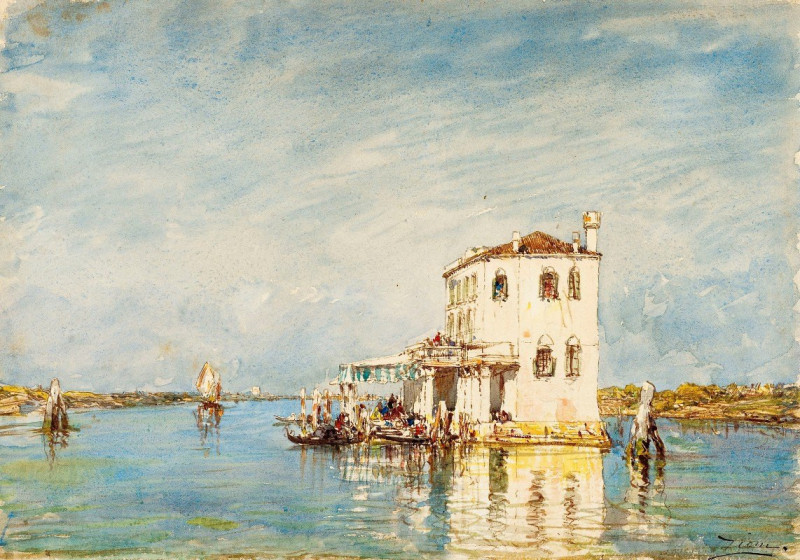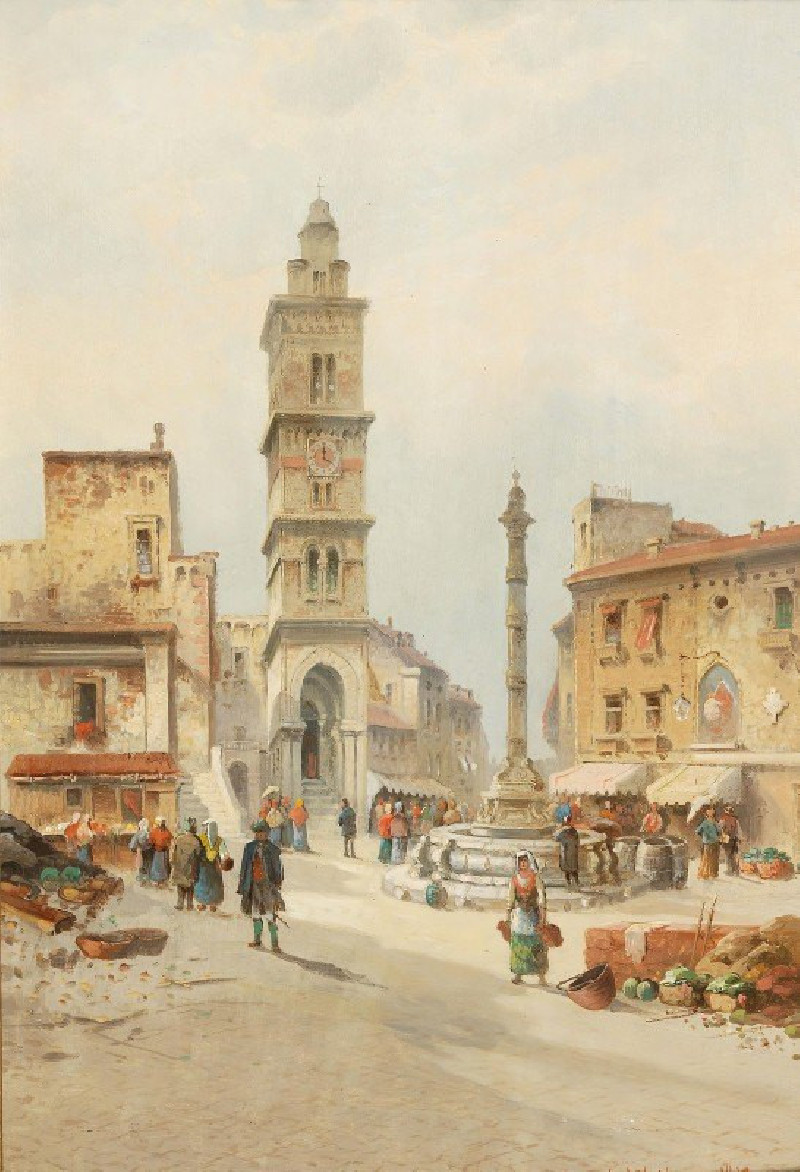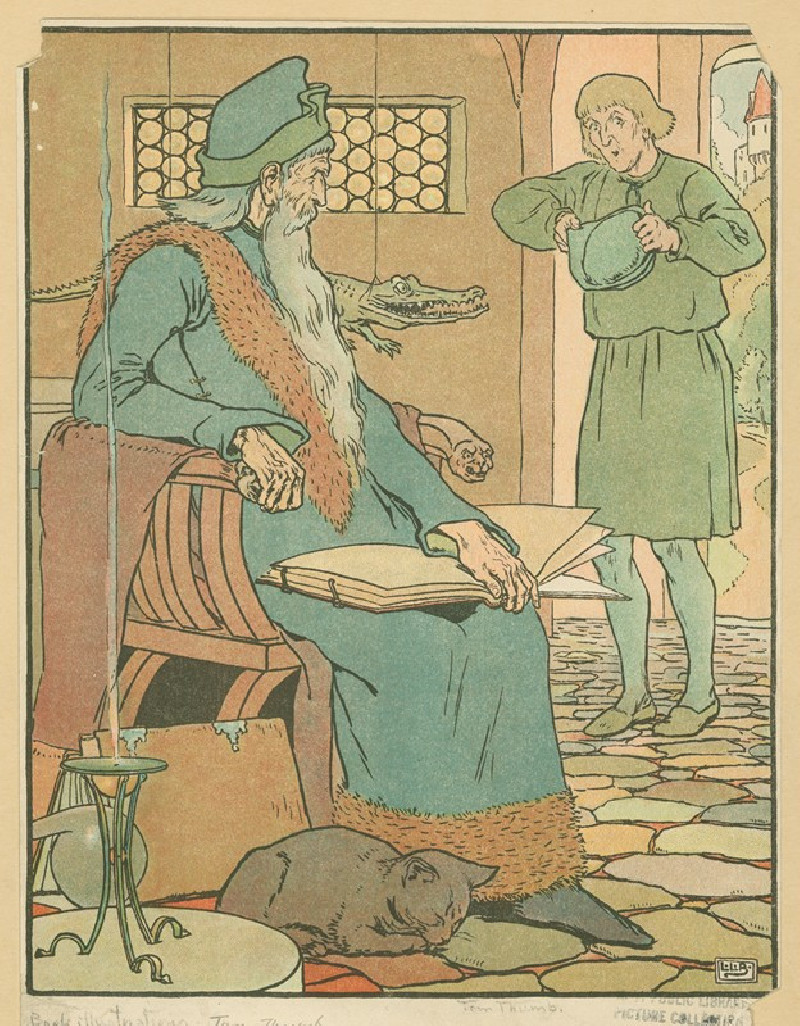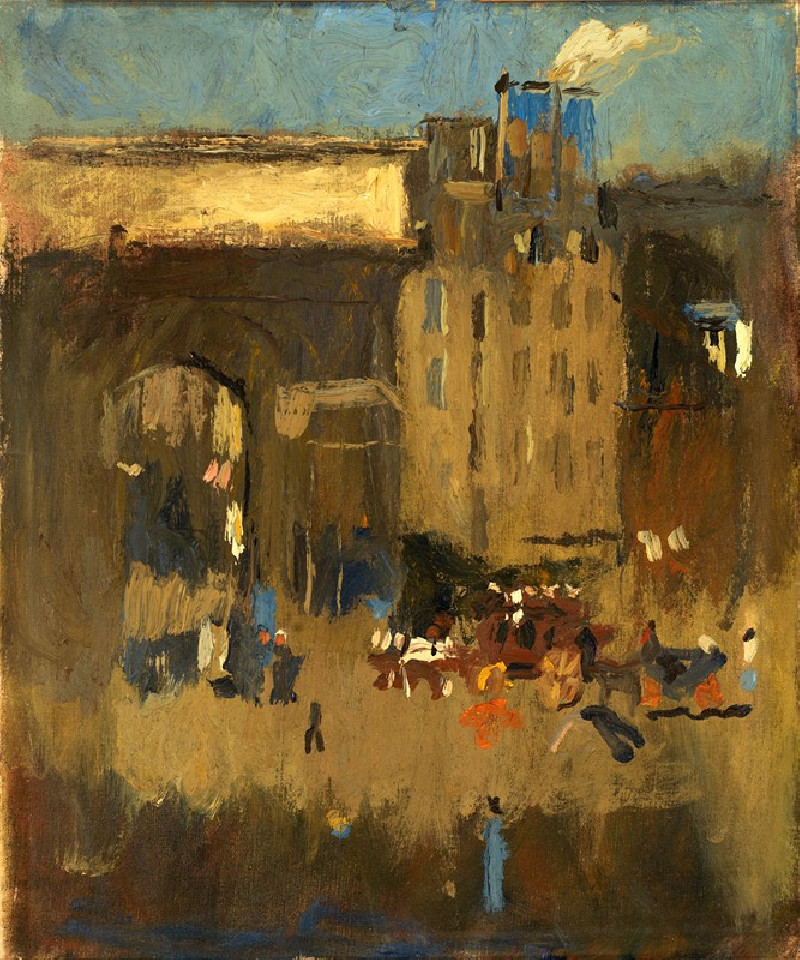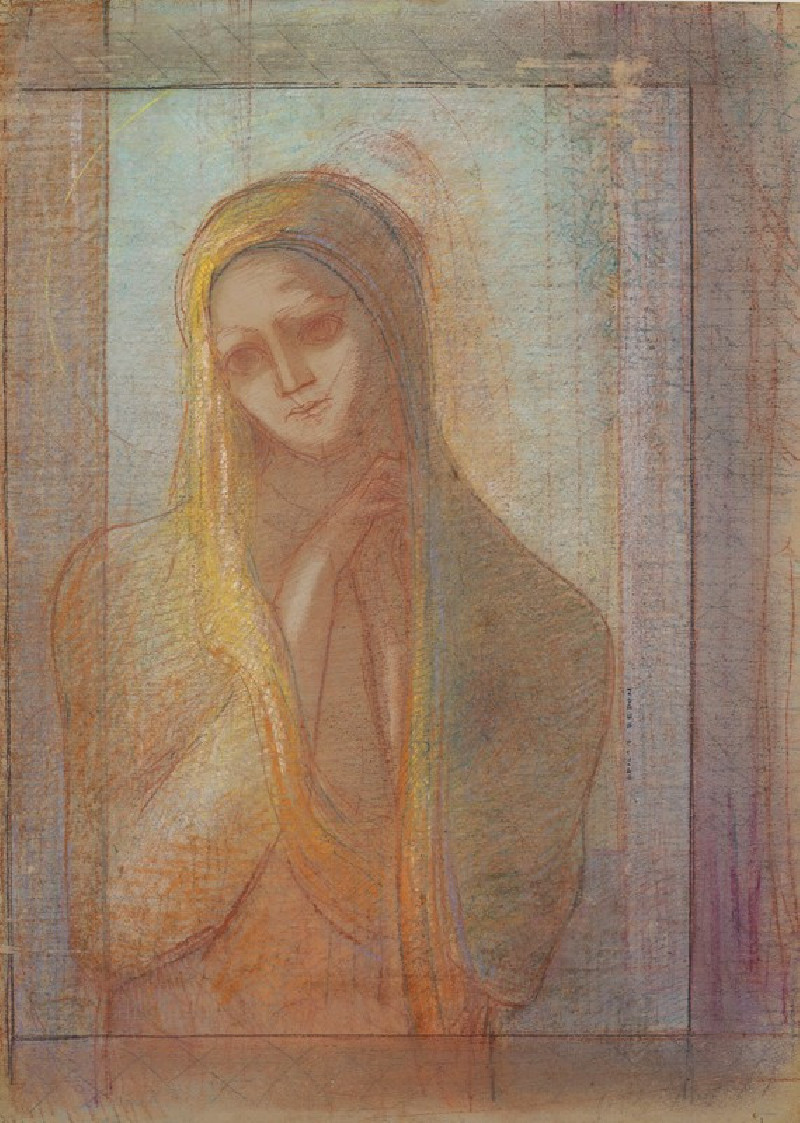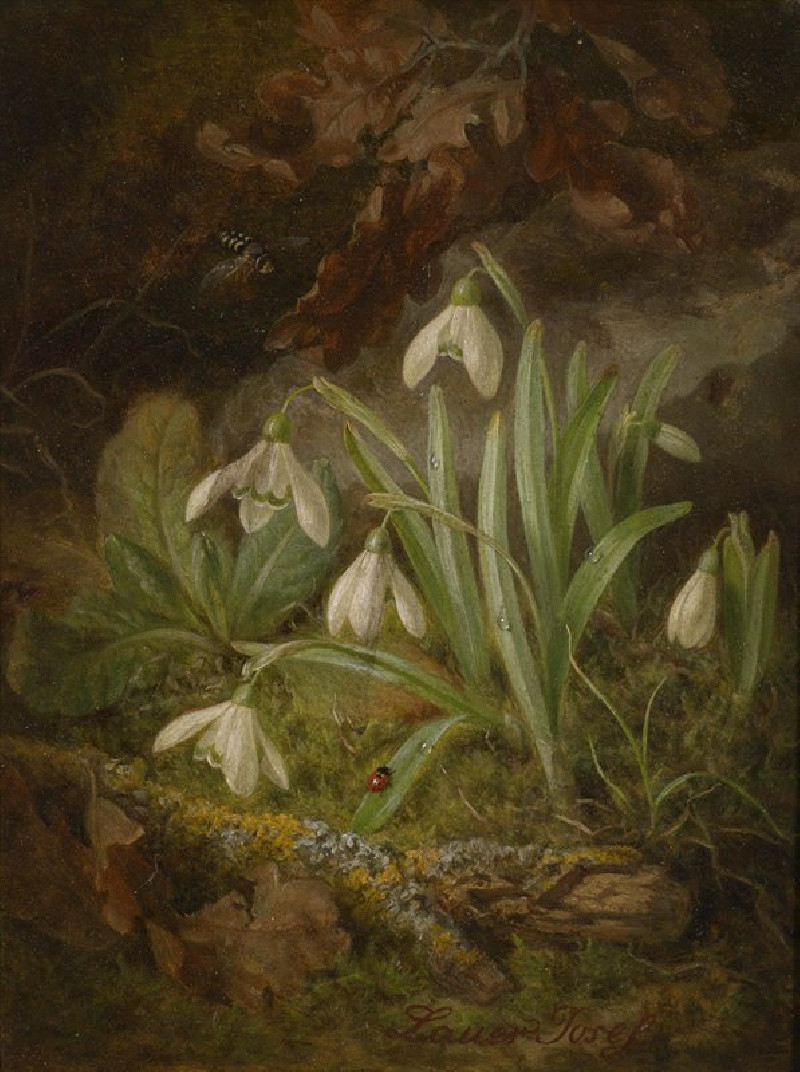Trouville, Le Port (1880)
Technique: Giclée quality print
Recommended by our customers
More about this artwork
Eugène Boudin's evocative painting, "Trouville, Le Port," dated 1880, is a masterful representation of the vibrant harbor atmosphere at Trouville, a picturesque locale on the coast of Normandy, France. This scene, which captures the essence of the port, is quintessentially Boudin, known for his role as one of the pioneers of plein air painting.The composition transports viewers to the bustling harbor, enveloped in a tonal harmony of soft grays and muted earth tones, which contrasts beautifully with the subtle blues of the water. Boudin’s brushwork ingeniously blends the reflections in the water with the sky, creating a dynamic interplay of light and color that is both serene and lively.The painting portrays a variety of boats, some moored and some in motion, with their sails gently touching the breezy skyline. The boats are not only depicted as functional vessels but also as integral, animated parts of the seascape, each carrying its own narrative. The distant shoreline is lined with an assortment of buildings, suggesting a thriving, populous town. These structures, with differing architectural styles and heights, contribute additional depth and interest to the canvas.Foreground details include figures in small boats, hinting at daily life and labor in the port. These human elements, though subtle and merely hinted at with minimal strokes, bring a sense of scale and relatability to the scene.Boudin’s work is often celebrated for its ability to capture the fleeting moments of everyday life and the changing qualities of light, and "Trouville, Le Port" is a prime example of his artistic vision.
Delivery
Returns
Eugène Louis Boudin (12 July 1824 – 8 August 1898) was one of the first French landscape painters to paint outdoors. Boudin was a marine painter, and expert in the rendering of all that goes upon the sea and along its shores. His pastels, summary and economic, garnered the splendid eulogy of Baudelaire; and Corot called him the "King of the skies".

